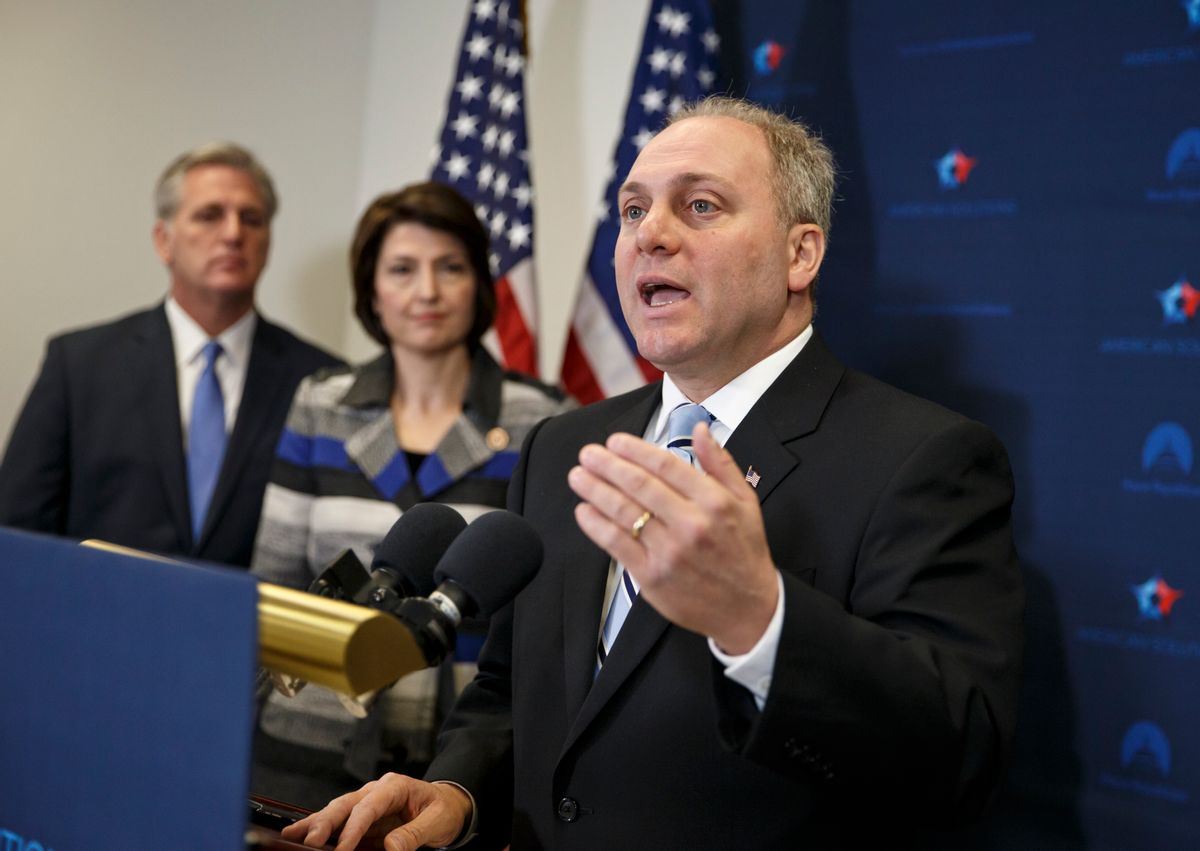WASHINGTON (AP) — In a revelation that could put a crimp in Republican efforts to reach out to minorities in 2016, House Majority Whip Steve Scalise has acknowledged that he once addressed a gathering of white supremacists, though his office denies any association with the group's social views.
Scalise, the chamber's third-ranking Republican, served in the Louisiana Legislature when he appeared in 2002 at a convention of the European-American Unity and Rights Organization. Former Ku Klux Klan leader David Duke founded the group, which the Southern Poverty Law Center has classified as a hate group.
In a written statement, Scalise aide Moira Bagley Smith confirmed that Scalise addressed the group as it gathered at a New Orleans-area hotel near the neighborhoods that both Scalise and Duke represented during separate stints as state lawmakers.
Smith said in her statement that Scalise spoke only to rally support for conservative fiscal policies in Louisiana, not to endorse the mission and views of his audience. Smith's statement came after a liberal Louisiana blogger, Lamar White Jr., first reported the 12-year-old story using online postings from members.
"Throughout his career in public service, Mr. Scalise has spoken to hundreds of different groups with a broad range of viewpoints," Smith wrote. "In every case, he was building support for his policies, not the other way around. In 2002, he made himself available to anyone who wanted to hear his" legislative agenda.
"He has never been affiliated with the abhorrent group in question," the statement continued. "The hate-fueled ignorance and intolerance that group projects is in stark contradiction to what Mr. Scalise believes and practices as a father, a husband and a devoted Catholic."
Scalise said in a telephone interview with NOLA.com(backslash)The Times-Picayune on Monday that he "didn't know who all of these groups were and I detest any kind of hate group. For anyone to suggest that I was involved with a group like that is insulting and ludicrous."
The story comes just days before a new Congress convenes, with Scalise poised to help shape House Republicans' agenda in his first full term as whip.
It also comes as American voters demonstrate increasing racial polarization in their political preferences, with white majorities siding overwhelmingly with Republicans in the 2014 midterms and non-whites continuing their strong support for Democrats. Many strategists say both parties must figure out how to reach beyond their respective bases.
Scalise, 49, ascended to his leadership post in June in the chain of events that followed then-Majority Leader Eric Cantor's surprise defeat in a Republican primary.
Scalise won the whip race with the solid backing of House conservatives, particularly Southerners who wanted a greater leadership voice considering the region's role in giving Republicans their largest House majority since President Herbert Hoover's administration at the start of the Great Depression.
He won his seat in a 2008 special election after helping build a more cohesive Republican caucus in a Louisiana statehouse that historically had not operated along party lines. His district includes majority white portions of New Orleans and surrounding suburbs, reaching to coastal and bayou communities anchored by the energy and fishing industries.



Shares